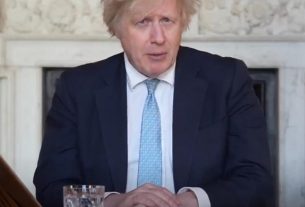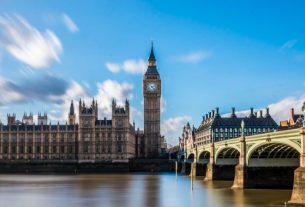Chancellor of the exchequer Rishi Sunak has stalled the prime minister’s already delayed energy security strategy.
It is nearly three weeks since Boris Johnson pledged the government’s energy plan will be published “in the next few days”. However, Sunak “doesn’t want to provide any new money” for schemes to help wean the UK off its dependence on foreign oil and gas, according to a Treasury source quoted by the Financial Times.
Sunak is “under pressure to bolster nuclear and wind power” as well as to “protect heavy industry” against the rising energy costs but the chancellor wants more time to scrutinise the plans.
Business secretary Kwasi Kwarteng wants to extend onshore wind projects but this has split the cabinet, according to the Independent. The chancellor “is believed” to regard these as “poor value for money”.
It is expected that the government’s energy security strategy may not be published until after the Commons’ Easter recess, with MPs leaving Westminster for their break on Thursday (March 31).
Energy security strategy – more renewable, nuclear, oil and gas
Chief secretary to the Treasury Simon Clarke told BBC Newsnight last week that fossil fuel projects will be maximised as part of the government’s energy security strategy.
“We need to get that production going to the maximum extent that we can,” said Clarke. “It simply would not be right to support Putin’s war in Ukraine by buying Russian oil and gas, but there are costs to that. We are very candid about that.”
Clarke said “in essence it means doing more of all of the things that we know we need to do.
“So it means more new renewables, it means more new nuclear, and it means more oil and gas from the North Sea.”
Free electricity for households near new nuclear plants
People living near new nuclear plants could receive free electricity as part of the energy security strategy, according to a report by the Telegraph today (March 28).
Government sources said the idea is being considered to compensate householders living near nuclear plants. It follows Johnson’s aim to have 25% of the UK’s electricity produced by nuclear energy to help the government achieve its zero-carbon target by 2035.
Seven of the country’s eight nuclear plants are due to be retired by 2028. The report said the plan “will mean a major expansion” of “mini-nuclear reactors” manufactured by Rolls Royce.
BoE governor warns of ‘historic shock’ to UK economy
Meanwhile the governor of the Bank of England, Andrew Bailey has warned of an “historic shock” to living standards as the price of energy surges following Russia’s invasion of Ukraine.
Bailey said: “This really is an historic shock to real incomes. The shock from energy prices this year will be larger than every single year in the 1970s.”
The BoE governor told an event in Brussels that while the central bank has softened its language on interest rates in light of the uncertain economic outlook, it remains appropriate to tighten policy given rising inflation.
Bailey’s comments follow last week’s prediction from the Office for Budget Responsibility that household disposable incomes will fall 2.2% in 2022 – the sharpest drop on record.
Inflation has already hit a 30 year high and is forecast to near 9% by the end of the year. The BoE’s monetary policy committee has raised UK interest rates three times, with the base rate now at 0.75%.




